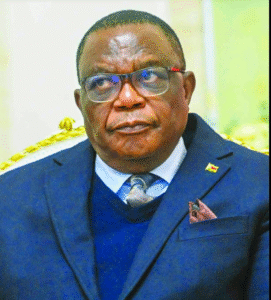COLTART STANDS FIRM AS OTHERS FALL: A BEACON OF HOPE IN ZIMBABWE’S POLITICAL CHAOS

In a season when Zimbabwe’s political scene is dominated by resignations, betrayals, and the crumbling of opposition structures, David Coltart has done something truly rare—he has chosen to stay. As chaos engulfs the Citizens Coalition for Change (CCC) after Nelson Chamisa’s sudden resignation, and as other elected representatives flee Parliament, Coltart, the Mayor of Bulawayo, is refusing to abandon his post.
This decision is not about stubbornness. It is about leadership.
When Chamisa resigned from the CCC on January 25, it sent shockwaves across the country. It also left many in the opposition camp uncertain about what to do next. Should they leave in solidarity? Should they stay and risk being seen as betrayers? David Coltart chose a third way: he turned to the people.
Instead of acting in isolation, Coltart launched a consultation process with the residents of Bulawayo. Through platforms like X (formerly Twitter) and WhatsApp, he asked the people he serves what they wanted. The response was overwhelming—“Do not resign.” That message came not only from Bulawayo residents but also from seasoned democracy fighters, many of whom have risked their lives and liberty for a better Zimbabwe over the past sixty years.
Coltart’s decision to stay is rooted in one simple but powerful idea: democracy doesn’t collapse just because one man resigns. It dies when the rest of us stop trying.
Bulawayo faces enormous challenges. The city is crippled by a water crisis, poor infrastructure, and decades of state neglect. Coltart has been on the frontlines, fighting to secure short-term relief and long-term solutions. To walk away now would be to abandon the people who are already suffering. It would also allow those who benefit from Zimbabwe’s broken system to tighten their grip.
This is why Coltart’s choice matters. He’s not staying for a salary—he earns just US$25 a month as mayor. He’s not staying to cling to titles or chase political relevance. He’s staying because his conscience tells him that leaving would do more harm than good.
Before making his final decision, Coltart even spoke to Chamisa, who advised him to continue his work. This alone debunks the idea that Coltart’s stance is a betrayal. On the contrary, it is a continuation of the democratic values that Chamisa himself has championed—values of service, of faith, of sacrifice.
His Christian belief drives his sense of duty. Coltart often refers to the biblical metaphor of being “salt and light.” It’s a call to be a moral example in dark and decaying times. It means standing firm even when others fall. And in Zimbabwe’s current political climate—where Parliament has become dysfunctional and recalls are used as political weapons—his example shines even brighter.
There are those who will call him naive. There are those who will accuse him of legitimizing a broken system. But Coltart’s actions speak louder than any accusation. He is not enabling tyranny—he is resisting it the only way left: by staying, by working, and by refusing to give up on the people.
In a political era where self-preservation often takes priority, Coltart’s loyalty to Bulawayo and to democratic values is a powerful rebuke to cynicism. His leadership reminds us that it is still possible to do politics for the right reasons.
David Coltart’s stand is not just about Bulawayo—it’s about the future of opposition politics in Zimbabwe. It is a challenge to all who believe in freedom, justice, and good governance: Will you stand firm when the ground beneath you shakes?
In staying, Coltart has chosen courage over convenience. And in doing so, he has reminded a nation in despair that integrity and public service still matter.



